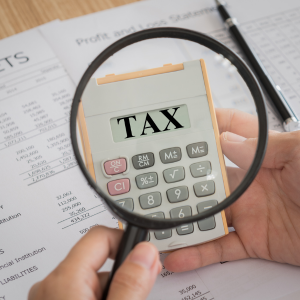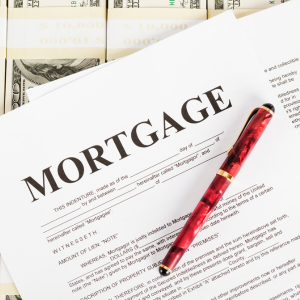
Facing foreclosure in Vancouver, WA? Learn how you can still sell your house even if it’s in foreclosure by exploring solutions like short sales or consulting with a real estate professional.
Understanding Foreclosure in Vancouver, WA: What Happens Next?
What are the stages of foreclosure in Washington State?
Washington State homeowners who are facing foreclosure may feel stressed. Being aware of the stages can help you gain control and plan your next move. It’s easy to understand:
- Notice of Default: The lender informs you that you’ve missed mortgage payments.
- Pre-Foreclosure: After this notice, you have a chance to pay off debts or talk to your lender about other options.
- Auction: If unresolved, your home may be sold at a public auction.
- Post-Foreclosure: If your home doesn’t sell at auction, it will be owned by the lender.
Understanding these steps and consulting with experts can help you manage foreclosure better.
What is a Notice of Default (NOD) and what should I do if I receive one?

If you haven’t made your mortgage payments on time, you will get a Notice of Default (NOD). Quickly move if you get a NOD in Washington State:
- Know Your Rights: Learn what you are entitled to as a homeowner facing foreclosure.
- Talk to Your Lender: You can discuss options like changing your loan terms or setting up a payment plan.
- Get Legal Help: A lawyer who knows foreclosure law can guide you.
- Look at Your Choices: Consider selling your home or refinancing it.
- Watch Your Credit Score: Keep an eye on your score as foreclosure can affect it.
These steps can help you handle the NOD and possibly stop the foreclosure.
How long does the foreclosure process typically take in Vancouver, WA?
In Vancouver, WA, foreclosure usually takes several months. Here’s a general timeline:
- Pre-Foreclosure Period: After receiving a Notice of Default, you typically have 30 to 90 days to fix the issue.
- Auction Scheduling: If not resolved, the auction might be set about four months after the NOD.
- Completion: The whole process, especially in court cases, can last from six months to over a year.
Knowing these timelines can help you prepare for what’s ahead.
What are the potential consequences of foreclosure (credit score impact, eviction)?
Foreclosure can have serious effects, such as:
- Credit Score Impact: It can lower your score by 85 to 160 points, making future financial matters tougher.
- Eviction: After foreclosure, you might have to leave your home.
- Financial Loss: You could still owe part of your mortgage if the home sells for less than what you owe.
- Future Loan Challenges: A foreclosure makes borrowing money harder for years.
Understand these risks and seek advice on how to lessen them, like talking to lenders about other solutions.
Can I stop the foreclosure process once it has begun?
Yes, you can stop foreclosure even after it starts. Here are some ways:
- Negotiate with Your Lender: You might change the payment terms of your loan.
- Consider a Short Sale: Selling your home for less than what you owe, if your lender agrees, can prevent foreclosure.
- File for Bankruptcy: This can temporarily stop the process, giving you time to sort out finances.
- Seek Legal Assistance: A lawyer can help you find the best option for your situation.
Each solution has pros and cons, so choose carefully what works best for you.
Selling Your Vancouver, WA House Before Foreclosure: A Step-by-Step Guide
Determining Your Home’s Fair Market Value in a Foreclosure Situation
If your Vancouver, WA home is facing foreclosure, knowing its fair market value is very important. This value tells you how much your property might sell for in the current real estate market. Get a professional appraisal to check the property’s condition and neighborhood trends. This evaluation helps you set a price that attracts buyers.
Calculating Your Mortgage Payoff Amount Including Late Fees and Penalties
It’s important to know your mortgage payoff amount, which includes late fees and penalties. Contact your lender to get a detailed statement. This will show the total balance, including interest rates and extra costs, so you can plan wisely.
Understanding and Preparing for Selling Costs (Agent Commissions, Closing Costs)
When you sell your home, you have to pay some fees, such as the closing costs and the agent’s fee. Most of the time, real estate brokers get paid a percentage of the sale price. Don’t forget about other costs, like attorney fees and title insurance. You can avoid shocks if you plan ahead.
Finding a Real Estate Professional Specializing in Short Sales or Foreclosure Properties
Picking the right real estate professional is key. Find someone who deals in foreclosures and short sales. Their understanding can help you deal with the problems in the Vancouver, WA market and make smarter choices.
Marketing Your Property Effectively to Attract Potential Buyers Quickly
Marketing is essential to sell your property fast. Use tactics that bring out the best in your home. Take a look at internet listings, virtual tours, and old-fashioned ads. You might want to hire a professional to help you make great marketing materials that get serious buyers interested quickly.
If you follow these steps, you have a better chance of selling your home before it goes into debt. Get help from Sell With Isaac. Contact Us today!
Legal Considerations for Selling a Foreclosed Home in Vancouver, WA
Do I need an attorney when selling a house in foreclosure?
You may be wondering if you need a lawyer to help you sell a house that has been taken back by the bank. Not having one is against the law, but having one can be helpful. You can get legal help from a lawyer, who can also explain your rights and duties during the sale. Also, to keep things legal, they check that all the papers are complete and correct.
What are the Washington State laws regarding foreclosure sales?
Legal rules and laws govern Washington State’s estate sales. Using these will help you get through the process. There is no need for a court’s approval in Washington’s non-judicial foreclosure scheme. For example, giving proper warnings and sticking to strict deadlines are serious rules. Understanding these rules helps you do things more easily and avoid making mistakes.
Understanding your rights and responsibilities as a homeowner facing foreclosure
Facing foreclosure is tough, but knowing your rights and responsibilities helps. If your home is in foreclosure, you should be given enough warning of any proceedings. You can keep your home if you pay off the bill before the auction. You should also take care of your home and stay in touch with your provider to protect your interests.
Navigating the complexities of a short sale vs. a traditional sale
Choosing between a short sale and a traditional sale takes careful thought. A short sale means selling your home for less than you owe, which needs negotiation with your lender. It’s a choice if you can’t keep up with payments but want to avoid foreclosure. A traditional sale happens under normal market conditions. Weighing each option helps you decide the best way forward.
How to handle communication with your lender and avoid legal pitfalls
Talking with your lender is key during foreclosure. Here’s how to do it well:
- Be Proactive: Contact your lender early if you hit problems. They might offer solutions like changing your loan or pausing payments.
- Seek Clarity: Make sure you understand any changes to your loan terms.
- Document Everything: Keep records of all your talks with your lender. These can help if issues arise later.
By following these steps, you manage negotiations better and avoid legal troubles.
It may seem impossible to sell a foreclosed home, but with the right plan and help, you can do it more easily. If you want personalized help, you might want to get in touch with a reputable real estate professional like Sell With Isaac.
Financial Aspects of Selling Your Vancouver, WA Foreclosure Property
Calculating your equity (if any) in your home.
When selling a foreclosure property in Vancouver, WA, knowing your equity is vital. Equity is the difference between your home’s market value and your mortgage balance. Here’s how to figure it out:
- Find your home’s current market value through a professional appraisal or by checking recent sales of similar homes nearby.
- Subtract your remaining loan balance from this market value. This result is your equity.
Understanding your equity helps you make smart selling choices— sell your house fast for cash in whether you’re in Amboy or Vancouver.
Estimating potential remaining loan balance and potential shortfall.
Before you sell, you should know how much of your loan is still due and if there is a gap. It’s easy to do this:
- Check your mortgage statement for the principal balance left on your loan.
- Include any additional fees or penalties due to foreclosure.
- Compare the sale price of your home with the remaining loan balance. If the sale price is lower, you might face a shortfall.
Knowing these details will help you plan your next financial steps.
Understanding and budgeting for closing costs.
Selling a foreclosed property involves different closing costs. Here’s what to keep in mind:
- Closing Fees: These are charges for services needed to complete the sale.
- Lender Fees: These are costs your lender may charge, like settlement fees.
- Budgeting: Plan for these costs early to prevent surprises. A real estate expert can help you understand what expenses to expect.
By planning for these costs, you can manage your finances effectively during the sale.
Tax implications of selling a foreclosed property in Washington State (capital gains).

Selling a foreclosed property in Washington State has tax implications:
- Capital Gains Tax: If your property has increased in value, you may need to pay capital gains tax.
- Exemptions: You might qualify for certain exemptions if this was your primary home.
- Tax Planning: Get advice from a tax professional to understand what taxes you owe.
You need to know the tax rules in Washington state if you want to sell your home for cash in Longview and nearby cities, especially if the property is in foreclosed.
Exploring options for dealing with a potential deficiency balance.
If you end up with a deficiency balance after selling your foreclosed property, consider these options:
- Negotiate with the Lender: You might settle for less than the full amount owed.
- Deficiency Waiver: Some lenders might agree to waive the deficiency.
- Financial Counseling: Contact financial planners who specialize in foreclosure issues.
Looking into these options can help you minimize the financial impact and find a practical way forward.
Alternative Options and Resources for Homeowners in Vancouver, WA
Short sale negotiations with your lender

If you’re having money troubles, a short sale might be a good choice. Without paying off the full mortgage, a short sale means that you can sell your home for less than what you owe on the loan. Simply tell your lender about your money problems in an honest way. Early communication with them is recommended to avoid default and safeguard your credit score.
- Understand your mortgage terms: Check the details of what you owe.
- Communicate openly with your lender: Be honest about your financial issues.
- Seek professional advice: Consider hiring a real estate professional who knows about short sales.
Loan modification options to avoid foreclosure
You might be able to afford your mortgage better if you change the terms of your loan. In this case, the lender may lower your interest rate or give you more time to pay back the loan. Get these ideas from your lender to keep your home from going into default.
- Gather financial documentation: Get your proof of income, bank statements, and other important financial papers ready.
- Submit a hardship letter: Explain the reasons you need a modification and what’s changed in your life.
- Negotiate new terms: Work with your lender to agree on a payment plan that you can manage.
Bankruptcy as a last resort (Chapter 7 vs. Chapter 13)
Bankruptcy can help you get rid of debt but should be a last option. Knowing the difference between Chapter 7 and Chapter 13 bankruptcy is important. Chapter 7 can clear your debts by selling assets, while Chapter 13 lets you keep your things and pay off debts over time.
- Consult an attorney: Get legal advice to decide which option is best for you.
- Evaluate your financial situation: See if bankruptcy will really help you with your money problems.
- Understand the implications: Know how bankruptcy will affect your credit and future financial dealings.
Local resources and support for homeowners facing foreclosure
For homeowners in Vancouver who might face foreclosure, there are local places that can help:
- Housing counselors: These experts can guide you on how to prevent foreclosure and manage your budget.
- Non-profit organizations: Some non-profits offer free services and advice for qualified homeowners.
- Community workshops: Attend these to learn more about handling your money and avoiding foreclosure.
Connecting with credit counseling services for long-term financial planning
Credit counseling services can be helpful for managing debt and planning for the future. They offer advice on budgeting, improving credit scores, and planning your finances.
- Find reputable services: Look for trusted credit counselors who can give you good advice.
- Develop a budget strategy: Work with counselors to create a budget you can stick to.
- Improve your credit score: Get tips on making your credit better for more financial opportunities.
For more specific advice, reach out to local experts in Vancouver, WA, who can provide guidance for your individual needs.
FAQS:
Can I sell my house in Vancouver, WA if it’s in foreclosure?
Yes, you can sell your house even if it’s in foreclosure. It’s important to act quickly to prevent the foreclosure process from continuing. We can help you with the steps to list and sell your property efficiently.
What are my options for selling a foreclosure home in Vancouver, WA?
You have several options: a traditional sale, a short sale, or selling to an investor for cash. Each choice has different effects, so it’s best to talk with a realtor to find the right option for you.
How does the house-selling process work in Vancouver if my home is in foreclosure?
The process involves listing your home, finding a buyer, and negotiating terms while keeping an eye on foreclosure timelines. We can provide guidance for a smooth transaction and help you understand the foreclosure mediation process if necessary.
Can I sell my home in Washington State if I’m behind on mortgage payments?
Yes, you can sell your home even if you’re behind on payments. We suggest looking into all available options, like loan modification or a forbearance agreement, before deciding to sell.
Are there any legal requirements when selling a house in foreclosure in WA?
Yes, there are legal requirements, like notifying the lender and following state regulations. Consulting with a real estate attorney or an experienced realtor can help ensure you meet these requirements.
How can mediation help me avoid foreclosure in Vancouver, WA?
Mediation can help you and your lender discuss other options instead of foreclosure. It might lead to solutions like loan modifications or a deed in lieu of foreclosure, which could help you keep your home or sell it under better conditions.
Do I need a realtor to sell my house in foreclosure in Vancouver, Washington?
While it’s not required, working with a realtor who knows foreclosure sales can be very helpful. They can handle negotiations, manage paperwork, and guide you through the complex process to increase your chances of a successful sale.
What should I consider if I want to sell my rental property in Vancouver facing foreclosure?
Think about existing tenant agreements and possible short sale situations. Checking market conditions and talking with real estate experts will help you make informed decisions throughout the process.
If you’re considering selling your home in foreclosure, contact us for personalized advice and assistance tailored to your situation.
Key Insights
- Are you wondering, “Can I sell my house in Vancouver, WA if it is in foreclosure?” Yes, you can still sell your home during a foreclosure process.
- Selling a foreclosure property in Vancouver involves knowing the Washington State foreclosure process.
- Consider options like short sales or deeds in lieu of foreclosure as alternatives when selling in Vancouver.
- Foreclosure homes in Vancouver, WA, are attractive to investors looking for good deals at auctions or direct sales.
- Understand legal aspects such as judicial foreclosures and deed of trust agreements when selling foreclosed properties.
- Realtors with experience in Vancouver’s market can guide you through selling, even during foreclosure.
- Know how Chapter 13 bankruptcy could affect your ability to sell a home if you’re facing financial trouble.
- Foreclosure doesn’t stop homeowners from refinancing or arranging forbearance agreements to delay proceedings.
- Unique housing laws in Vancouver and the greater Portland metro area affect sales, especially for homes in foreclosure.
- Weigh the pros and cons between selling a foreclosure or letting the bank take over.
- To sell during foreclosure, you might need to work closely with lenders, lawyers, and real estate experts.
- Assess market factors in the Vancouver area, like average home prices and interest rates, to choose a selling strategy.
- Legal help and mediation can assist homeowners dealing with foreclosure issues.
- If your property has tenants, clear communication is essential for a smooth sale.
- Using investor networks can speed up the sale of distressed properties in Washington, Oregon, or California.
- Selling successfully may reduce stress and offer a new start for homeowners.
- Look for expert opinions and resources online, such as blog insights and updated foreclosure news.
- Contact us today to explore your options, get a home evaluation, or connect with local experts who can assist in this challenging journey.
![Home Buyers In [market_city]](https://image-cdn.carrot.com/uploads/sites/79775/2025/03/Home-Buyer-1920x800.png)
